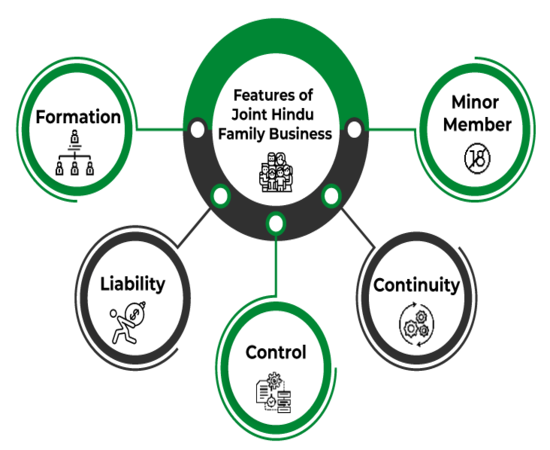
Optimizing Tax Benefits with India’s Hindu Undivided Family (HUF) Business Structure ( August 14, 2023 )
Embracing tradition in modern finance, the Hindu Undivided Family (HUF) framework in India presents business owners and entrepreneurs with unique avenues for tax optimization, succession planning, and asset management. This article explores the key features of an HUF, a step-by-step establishment guide, important considerations, and the tax advantages it offers.
From distinct tax entity status to investment benefits, an HUF provides a strategic tool for effective financial management. For more information and business support in India.
HUF in India: Key features, formation, eligibility:-
A fundamental characteristic of the HUF is its composition, which encompasses individuals who trace their lineage back to a common ancestor, including wives and unmarried daughters. This unique structure can be established by individuals practicing Hinduism, Jainism, Buddhism, or Sikhism. The helm of an HUF is steered by the karta (head), while members hold the designation of coparceners. It must be noted that those who are not covered by the extended definition of a Hindu, such as Muslims, Christians, Jews, and Zoroastrians, cannot have an HUF.
Essential Characteristics of HUF
- Karta: The karta, often the eldest male member of the family, assumes the pivotal role of head and manager of the HUF. This individual possesses the power to make crucial financial and managerial decisions on behalf of the family unit.
- Coparceners: As defined by the Hindu Succession Act of 1956, every individual born into an HUF automatically acquires the status of a coparcener at birth. This includes both sons and daughters, who are bestowed with equal rights and obligations concerning the family’s property. Importantly, even after marriage, a daughter retains her coparcenary status, with her descendants subsequently becoming coparceners in her share upon her demise. It’s imperative to distinguish between a coparcener and an HUF member. While all coparceners are members, not all members hold the status of coparceners. Spouses of coparceners are recognized as members but not coparceners within the family framework. Furthermore, the authority to call for the division of property rests exclusively with the coparceners.
- Pooling of assets: A cornerstone feature of the HUF is the consolidation of family assets. All income derived from these assets, be it from ancestral property, business ventures, or investments, is considered joint property of the family collective.
- Application of Mitakshara law: HUF operates under the tenets of the Mitakshara School of Hindu Law. This implies that property within the HUF is distributed by means of survivorship. Consequently, upon the demise of a family member, their share is reallocated among the surviving members of the family, following established legal principles.